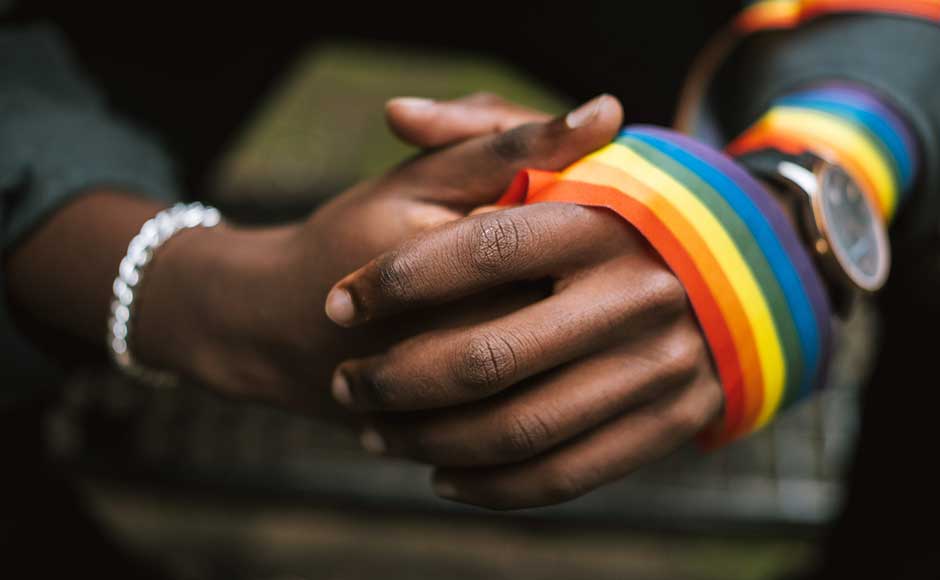Diverse gender identities

In 2016 the General Assembly of the Church of Scotland agreed to promote learning and awareness of the issues transgender and gender non-conforming people experience. We also called for more to be done at a local level to be inclusive and offer pastoral support.
Pastoral Care
Since then, we have worked in partnership with the Scottish Trans Alliance to produce a booklet, Diverse Gender Identities and Pastoral Care. This resource is a collection of stories from trans people and their family members in Scotland connected to the Church, and includes a number of questions for further reflection.
Equality, Diversity and Inclusion
In 2021 the Assembly Trustees established an Equality, Diversity and Inclusion Group. The work of this group looks at raising awareness and offering guidance and resources in all areas of the life of the Church on equality, diversity and inclusion issues.
It uses the nine protected characteristics in the Equality Act 2010 as a starting definition:
- Age
- Disability
- Gender reassignment
- Marriage and civil partnership
- Pregnancy and maternity
- Race
- Religion or belief
- Sex
- Sexual orientation
More information about the group, including the theological basis for its work, can be found on our EDI page.
Why share pronouns?
Pronouns are used in place of a proper noun (like someone's name). We use pronouns most often when referring to someone without their name. The Church supports employees including their preferred pronouns in their email signatures, should they wish to do so.
People may share pronouns to avoid making assumptions about anyone's gender identity. Sharing your own pronouns demonstrates inclusion and a willingness to use someone else's pronouns. This helps those with diverse gender identities and gender expressions feel more comfortable identifying their pronouns to us, should and when they choose to. It also offers a reference point to help us check someone's pronoun before we interact with them, especially as it may not match their perceived gender. Many names do not obviously correlate with a person's gender and many cultural assumptions can contribute to making commonplace mistakes e.g. the name Jean and Nicola are often women's names in Scotland, whereas they are mostly men's names in France. Names like Alex, Sam, Eli and Lindsay are used by all genders and considered to be gender neutral.
Overall, pronoun inclusion is a small way to support individuals with diverse gender identities and gender expressions on a daily basis.
Theological Reflection
The Church's Theological Forum and predecessor committees have published several reports and papers over many years looking at issues relating to human sexuality, marriage, singleness and relationships (including same-sex relations). Previous reports can be found on the Theological Forum page. In 2024, the Theological Forum presented its report, ‘"Transgender Identities in the Church of Scotland" to the General Assembly. The report engages with scripture, lived experience and theology, and concludes "The vital point we wish to assert is really very simple. Transgender people are part of the Church of Scotland and they are welcome."
Conversion Therapy Ban
In 2022 the General Assembly acknowledged the practice of conversion therapy is harmful and urged the Scottish Government to ban conversion therapy. The definition which was used is outlined in the Memorandum of Understanding on Conversion Therapy in the UK, which is backed by more than 20 health, counselling and psychotherapy organisations including the Association of Christian Counsellors.
Reform of the Gender Recognition Act
The 2004 Gender Recognition Act is a piece of civil law which allows a person to apply for a Gender Recognition Certificate. In 2022 the Scottish Government introduced the Gender Recognition Reform (Scotland) Bill at the Scottish Parliament. The Scottish Churches Parliamentary Office have published a briefing paper on the Bill.
During the Stage One consideration of the Bill by the Parliament's Equalities, Human Rights and Civil Justice Committee, the Church's Faith Impact Forum (the General Assembly committee whose remit includes making contributions to public policy making on behalf of the Church) submitted written evidence. Subsequently, the Church was invited to give oral evidence at a panel discussion and was represented by the Rev Karen Hendry, Vice-Convener of the Faith Impact Forum. Following her appearance, Karen wrote to the Committee to supplement her oral evidence.
The Faith Impact Forum response agreed with the need to reform the process for applying for a Gender Recognition Certificate. In line with the inclusive and pastoral approach that had been agreed by the General Assembly, and noting that the World Health Organisation no longer classifies gender dysphoria as a mental or behavioural disorder, the Forum supported the removal of the medical diagnosis requirement by a panel, as many people had described this as difficult or uncomfortable. The Forum's response did not support lowering the age at which someone can apply for a Gender Recognition Certificate from the current age of 18 to 16.